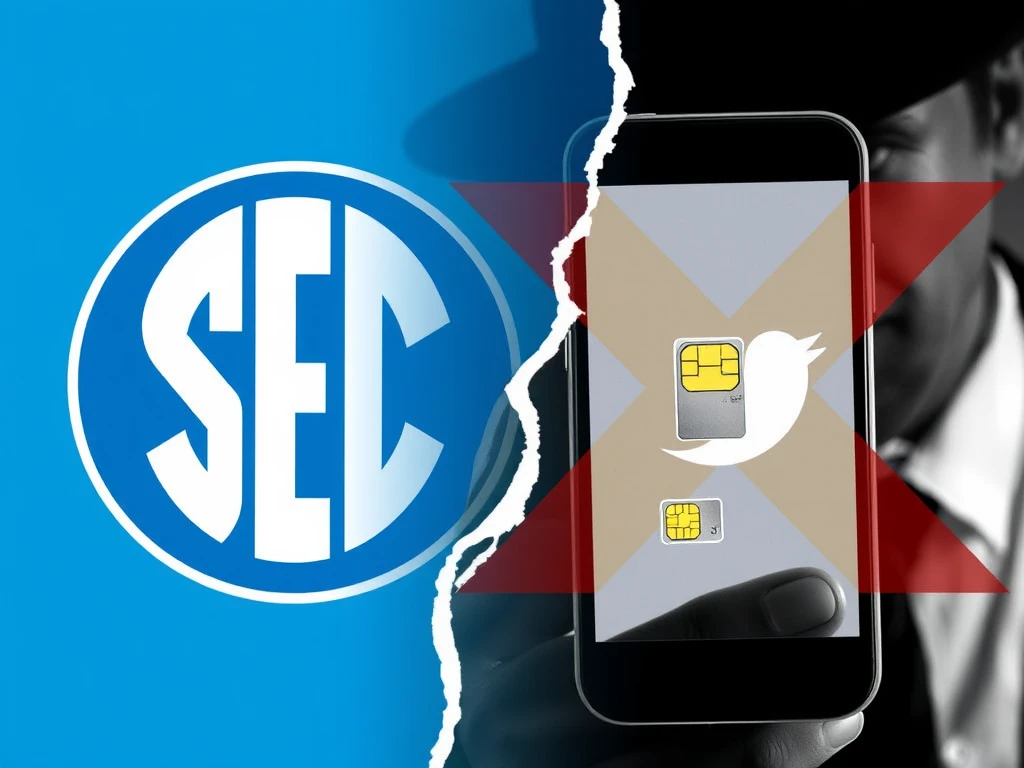Shocking SEC Hack Details: SIM Swapper Eric Council Jr. Googled ‘FBI Investigation’

The digital world holds secrets, but sometimes, the attempts to hide them are the most revealing. The recent case of the sec hack that rocked the cryptocurrency markets with a fake bitcoin etf approval announcement offers a startling look into the mind of one of the individuals involved.
Inside the Shocking SEC Hack and SIM Swap
The incident on January 9, 2024, saw the official X account of the U.S. Securities and Exchange Commission (SEC) compromised, leading to a false post about a spot bitcoin etf approval. This brief but impactful event caused significant market volatility. At the heart of the technical breach was a sim swap attack.
A SIM swap involves tricking a mobile carrier into transferring a phone number to a new SIM card, typically controlled by the attacker. This gives the attacker access to calls, texts, and often, multi-factor authentication codes linked to the victim’s phone number. In this case, the target was an SEC staff member with access to the agency’s X account.
Eric Council Jr.’s Role and His SIM Swap Business
Recent court filings shed light on the actions of eric council jr., who pleaded guilty to his role in the SEC account compromise. Council Jr. specialized in performing sim swap attacks for various clients. He advertised his services on Telegram under the username ‘easymunny,’ charging between $1,200 and $1,500 per successful swap. According to prosecutors, Council Jr. admitted to earning around $50,000 from these activities between January and June 2024.
To execute the SEC sim swap, Council Jr. created fake identity documents impersonating the targeted SEC staff member. He then used these fake IDs to deceive an AT&T employee into porting the victim’s phone number to Council Jr.’s SIM card. With the phone number controlled, he could receive the necessary codes to access the SEC’s X account, sharing this access with co-conspirators who made the fake post.
Attempting Cover-Up: The FBI Investigation Search
Perhaps the most striking detail from the filings reveals eric council jr.‘s state of mind after the high-profile sec hack. As law enforcement began investigating the breach, Council Jr. became increasingly concerned about being caught. Prosecutors discovered search history on his devices showing queries like:
- “How can I know for sure if I am being investigated by the fbi”
- “How long does it take to delete Telegram account”
These searches indicate a clear attempt to assess the risk and potentially destroy evidence. While Council Jr. had set his Telegram chats to auto-delete, investigators were still able to recover conversations where he discussed sim swap techniques with others.
Capture and Consequences of the FBI Investigation
Eric Council jr.‘s luck eventually ran out. He was observed by surveillance agents attempting another sim swap at an Apple store in June 2024. This led to a search warrant being executed on his property, where agents found circumstantial evidence, including templates for creating fake IDs on his laptop. He was indicted in October and subsequently pleaded guilty in February 2025.
The prosecution has requested a two-year prison sentence for Council Jr. His case highlights the increasing threat of sim swap attacks, particularly when targeting high-profile accounts and individuals. The sec hack served as a stark reminder of the importance of robust security measures, including mandatory two-factor authentication, which the SEC’s X account reportedly lacked at the time, though the SEC claims it was erroneously removed.
Market Impact and Broader Implications
The fake bitcoin etf post caused immediate market reaction, with Bitcoin’s price briefly surging before plummeting, liquidating significant trading positions. While the market quickly corrected once the SEC confirmed the hack, the incident underscored the potential for market manipulation through compromised official channels.
The case of eric council jr. and the sec hack is a cautionary tale. It demonstrates the technical methods employed by attackers, their attempts to evade capture (like Googling for signs of an fbi investigation), and the real-world consequences for both the perpetrators and the markets. It reinforces the critical need for individuals and organizations, especially those in sensitive positions, to implement the strongest possible security protocols to prevent sim swap and other identity-based attacks.









